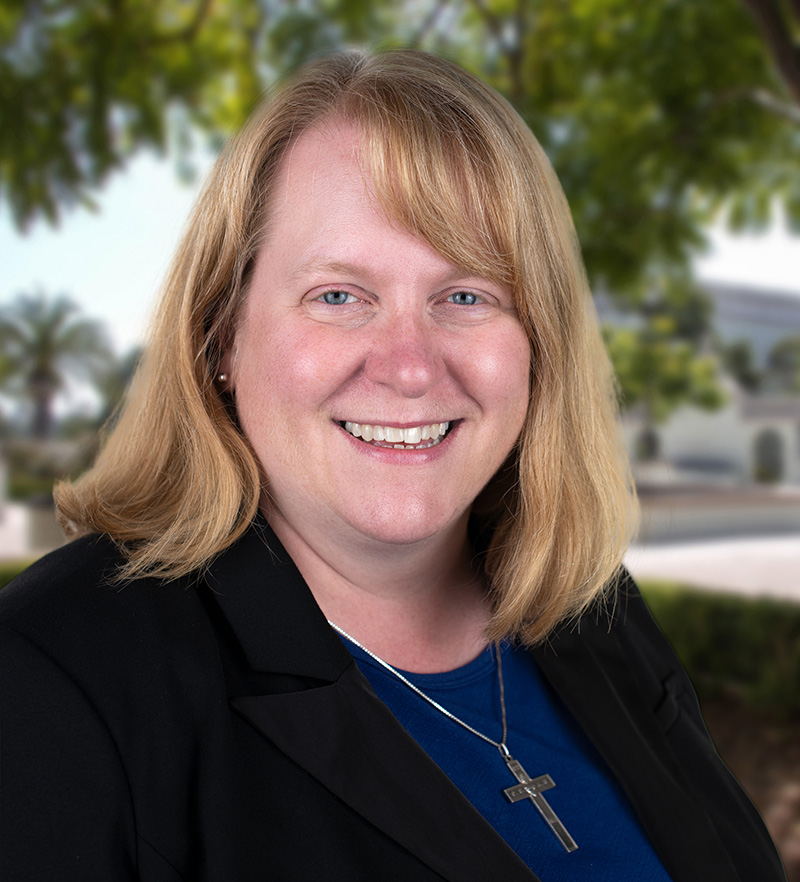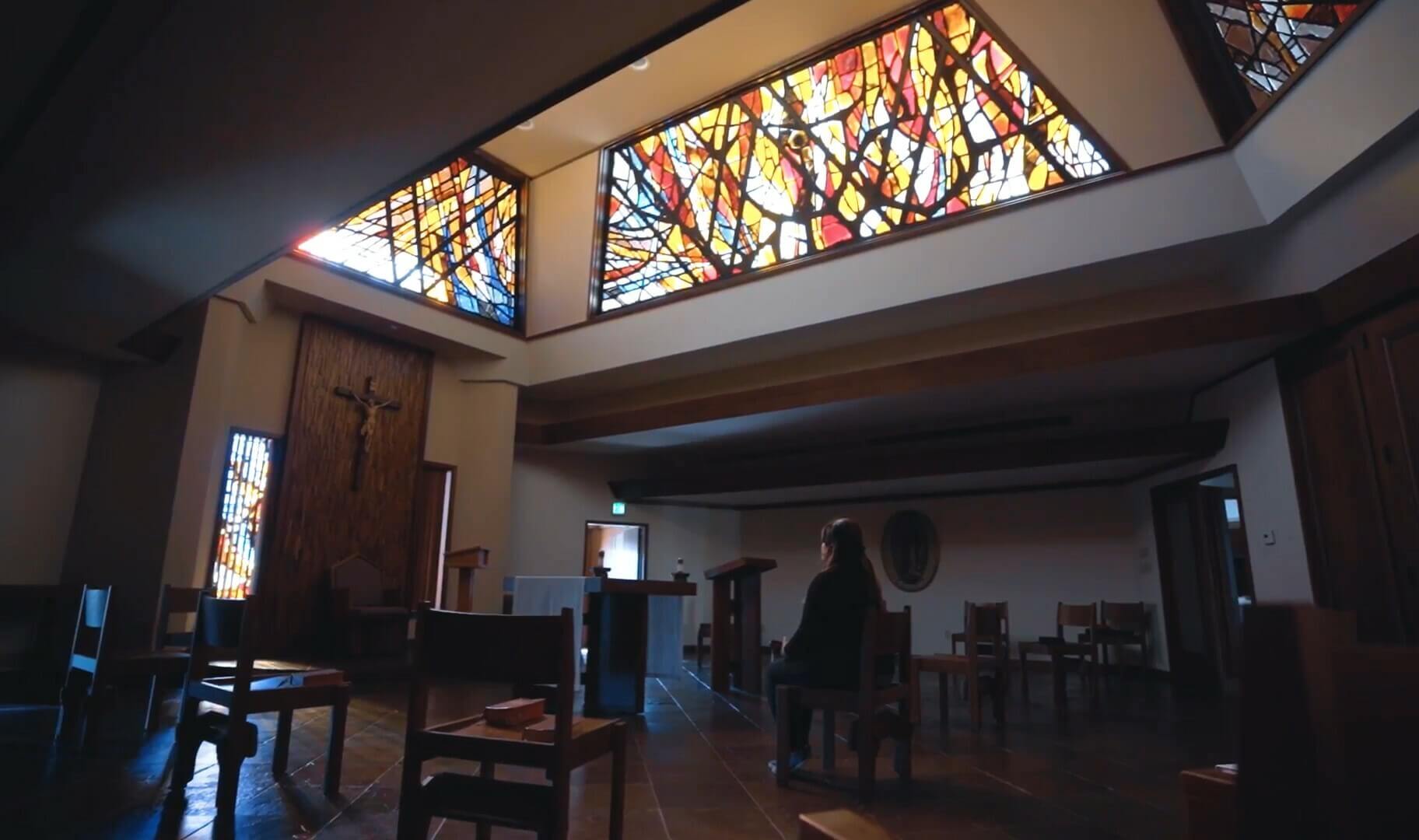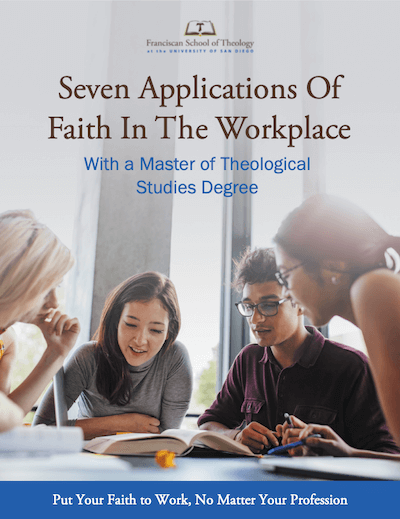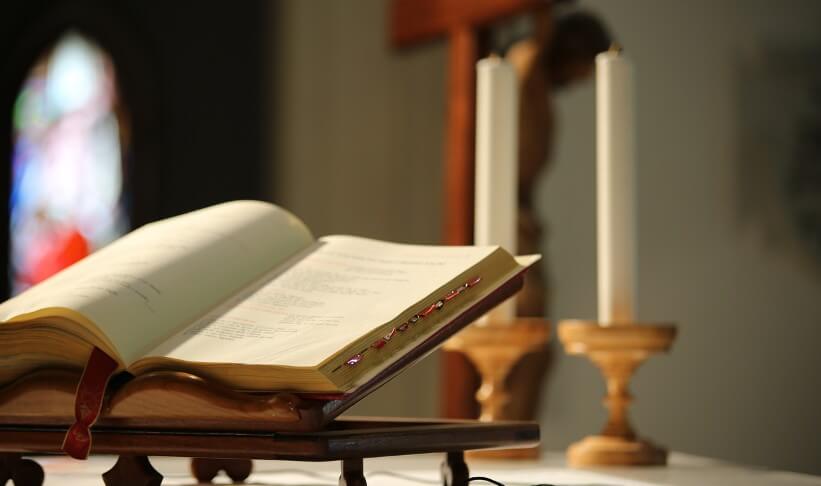All followers of the Catholic faith are called by God to serve Him in the world. This calling, known as a vocation — which comes from the Latin vocare, meaning “to call” or “to invoke” — begins with the Sacrament of Baptism, at which time the newly baptized neophytes are called to holiness. But Baptism is only the beginning: Discerning a religious calling is a deeply personal, often lifelong journey, one that offers many spiritual rewards and enables one to live in the fullness of God’s light and love. The Catechism of the Catholic Church refers to a vocation as “the calling or destiny we have in this life and hereafter” and tells us that “the fulfillment of this vocation is eternal happiness.”
Although in the secular world, the term “vocation” has become synonymous with “job,” “occupation,” or “career,” it carries deeper meaning and greater significance within a Catholic context. Each Catholic has a unique vocation, which they must seek out in order to form a meaningful relationship with Jesus Christ. In the words of Pope Benedict XVI, “Each of you has a personal vocation which He has given you for your own joy and sanctity.”
According to the Archdiocese of Seattle:
“Vocations are the fundamental ways we are asked to love, and include lifelong commitments or promises. From this basic lifestyle, we work different jobs/careers such as doctors, pastors, principals, etc. Our vocation is who we are; jobs/careers are what we do.”
To that end, although Catholics may live out the principles of their vocation and serve God through the work that they do, they are not necessarily called to follow a specific career path. Instead, they work to discover God’s will for them through a process known as vocational discernment.
What Is Vocational Discernment?
Like the root word of “vocation,” the word “discernment” is derived from the Latin discernere, meaning “to perceive” or “to distinguish.” Combined with what we know about vocare, we can therefore deduce that vocational discernment refers to the process of perceiving one’s calling. The Diocese of Phoenix puts it more eloquently — and, perhaps, more accurately — by describing vocational discernment as “a process and probing that gradually uncovers the deepest desires planted by God in a person’s heart.”
To put this into perspective, your vocation is the will of God acting through you. If you feel inclined to follow a particular path, that is because God has planted that seed within you. Even if you’re drawn to a particular vocation based on your strengths and interests, those qualities are themselves gifts from God, making them quite literally “the deepest desires planted by God in a person’s heart.” Vocational discernment accounts for the totality of a person — how God has called and formed you — and puts your gifts into focus, eliminating unnecessary worldly distractions.
For a deeper understanding of vocational discernment, you can view this lecture hosted by Dr. Thomas Nairn, OFM on A Franciscan Spirituality of Discernment:
What Are the Catholic Vocations?
Though every follower of the Catholic faith’s primary vocation is to holiness, those who undergo the process of discernment will find themselves called to one of five particular vocations:
- Priesthood: Perhaps the most widely recognized vocation, those called to the priesthood are responsible for proclaiming the Word of God and administering the seven sacraments. There are two types of priests, both of whom are ordained, but serve different communities: diocesan and religious priests.
According to the Archdiocese of Chicago, a diocesan priest “serves parishioners within a diocese and reports to the Bishop”; they are typically assigned to a particular parish and live within that community. By comparison, a religious priest “is a specialist in serving the needs of a larger community that is not necessarily based in a parish.” Religious priests belong to a particular order and are given assignments by their superiors; as a result, the role of a religious priest may change as circumstances dictate. - Religious Life: Those with a religious life vocation — also known as a consecrated life vocation — are called to follow Christ by taking vows of poverty, chastity, and obedience. Religious life can be either apostolic (living in the world) or contemplative (living a life of prayer).
OKC Vocations explains that those called to apostolic religious life typically “live in a community with a shared apostolate (or mission), charism (the particular expression of the community’s life, the community’s ‘culture’), and spirituality.”
Members of contemplative orders also share community, charism, and spirituality, along with a commitment to stability (to remain in the same convent).
In his Apostolic Exhortation Vita Consecrata, Pope John Paul II described religious life as “a splendid and varied testimony, reflecting the multiplicity of gifts bestowed by God on founders and foundresses who, in openness to the working of the Holy Spirit, successfully interpreted the signs of the times and responded wisely to new needs.” - Married Life: Within a Catholic context, marriage is not simply a legal union between two people, but a call from God to holiness and to build a life of sacramental love and partnership. Many followers of the faith find themselves called to married life, a vocation that the Archdiocese of Seattle tells us “enables us to love more deeply than by our own power” and “transforms a contract between two people into a way of discipleship and conversion.”
- Single Life: A relatively recent entry into the realm of particular vocations, the call to a single life is nevertheless a powerful one. Those called to this vocation may dedicate more time to prayer and study and to spiritually mentoring others.
According to the Office of Vocations for the Diocese of Corpus Christi, “the single life is a vocation that is to be lived out in the midst of the work”; those with this vocation “represent Christ wherever they are and [through] whatever they do.” Ultimately, the single life vocation is to proclaim the Word and act as shining beacons, “pointing out the way to God.”
A single life vocation can be either a temporary vocation — some individuals move from a single life vocation to another vocation — or a lifelong one.
Common Elements of Vocational Discernment
Although vocational discernment is a deeply personal journey — one that varies by individual — the process of discerning a Catholic vocation does feature a few common elements:
- Prayer: God is not always obvious or immediate with His intentions. As the Roman Catholic Archdiocese of St. John’s notes, earth-shattering messages are not typically God’s preferred communication style — which is why vocational discernment requires prayerful reflection and contemplation. Most sources recommend setting aside time each day to sit quietly with God and listen for His calling; some also recommend journaling or reading the Scriptures to aid in the process.
- Guidance: Although vocational discernment may be unique to each person, you need not go it alone. Meeting with a trusted spiritual guide on a regular basis can provide you with the spiritual guidance you need to make sense of God’s plan for you.
- Exploration: Other members of your parish can also be a valuable resource when discerning your vocation. Try connecting with those who are already living the life you feel called to in order to see how they find fulfillment in their vocation. You can also contact the Office of Consecrated Life within your diocese to learn what religious life opportunities may be available to you.
How to Discern Your Vocation in the Catholic Church
In addition to the common elements listed above, those looking to discern God’s will may benefit from following these general guidelines:
- Release past hurts and work through fear. Anger and fear are two of the greatest obstacles to discerning one’s vocation because — as the Diocese of Harrisburg explains — they “impair our ability to trust and follow the will of God,” “interfere with the ability to love others and to accept love,” and “[inhibit] our complete gift of self to Jesus.” Before you begin your journey to vocational discernment, give yourself the space to heal from past hurts with the support of your pastor or some other trusted counsel, and learn to let go of fear and give yourself completely over to God.
- Become actively involved in your church. Regularly attending church services can be a helpful starting point for discernment, but true spiritual growth and clarity comes from active participation in and engagement with your parish community. There are many ways to get more involved in and serve your church, including becoming part of weekly worship and leading lay ministry, any of which could lead to vocational enlightenment.
- Develop your gifts. Each person has God-given gifts — be they the seven gifts of the Holy Spirit or other, less spiritual talents or abilities — that they can use in service of their vocation. Working to develop your gifts and how they might be put to best use within your community can help clarify your calling.
- Find time for silent prayer and meditation. In our busy world that is rife with distractions, it can be difficult to find a moment’s peace for prayerful reflection — but for those seeking discernment, it is absolutely essential. Blocking out time within your daily schedule can make it easier to turn silent prayer and meditation into a practice, as can finding a quiet place to sit in conversation with God, such as your parish church or a designated space in your home. Attending silent retreats on a regular or semi-regular basis can also be a helpful way to tune out distractions and connect with God.
- Create a timeline. Although, in truth, everyone is on God’s timeline, setting a schedule for one’s vocational discernment can provide a helpful framework and prevent you from falling into what Rachel Coleman of Blessed Is She calls a “vortex of perpetual discernment.” You might even consider selecting a meaningful day within the liturgical calendar as your end date; Coleman states that since she entrusted her vocational discernment into the hands of Mary, she chose a Marian feast as her ending date.
- Receive the Sacraments. In order to understand God, you must first receive Him. The Office of Vocations of the Archdiocese of Atlanta emphasizes the importance of receiving the Sacraments to vocational discernment, stating that: “The soul is the window through which we can see God and hear His voice. If the window is dirty because of sin, it must be cleaned through Confession so we can be in union with God. When you receive Communion, ask Jesus to show you your vocation.”
- Look into religious orders. For those contemplating a religious life vocation, educating yourself on the various religious orders — such as the Benedictines, the Carmelites, the Dominicans, and the Franciscans— and their charisms can help you determine which one most closely aligns with your gifts.
- Ask thoughtful questions of yourself, as well as others. Your pastor, members of religious orders, and other members of your parish community can all be valuable resources along your path to discernment, helping you to understand the blessings and challenges of their vocations and offering guidance on how they think God is calling you to love. By that same token, it is also important that you engage in self-reflection and introspection to better understand your own motivations.
The United States Conference of Catholic Bishops (USCCB) recommends asking yourself the following:- Am I open-hearted to whatever God is calling me?
- Am I disposed and free to respond to that call?
- Do I sense a degree of potential satisfaction, hope, or joy when I consider religious life?
- If it is God’s will, do I trust that it can be fulfilled?
- Is my primary motivation of a spiritual nature, such as serving and loving God and God’s people?
- Would I experience adequate happiness and fulfillment?
- Do I have reasonably good health, emotional stability, social ease, and spiritual-centeredness?
See overview: University of San Diego – Master of Theological Studies
Key Resources for Catholic Vocational Discernment
If you are considering a vocation within the Catholic Church or laity, the best place to begin is by contacting the Office of Vocation within your diocese. Though the primary role of the Director of Vocations is to work with those interested in diocesan priesthood, they may be able to refer you to diaconate formation and religious life options, or to connect those who feel they may be called to a married life to the Office of Marriage and Family.
Other informative resources to review include:
- A Nun’s Life Ministry — an online community of Catholic sisters and nuns created to “help people discover and grow in their vocation by engaging questions about God, faith, and religious life.”
- Witnessing Joy: Catholic Sisters Today — a lecture on the theological meaning of religious life in today’s world, hosted by Dr. Juliet Mousseau, RSCJ, Vice President for Academic Affairs at the Franciscan School of Theology.
- VISION Vocation Network — an online resource network created by the National Religious Vocation Conference to support not only those exploring religious vocation, but also those actively involved in the Catholic vocation ministry.
- Called to a Franciscan Life Style: Discernment — a reflection on the subject of vocation from the For Up to Now manual, a publication from the Secular Franciscan Order.
- Discernment — an online resource created by the Franciscan Friars of the Province of Santa Barbara to support those entering a time of discernment.
- The Life of a Secular Franciscan — a personal reflection on the call to Secular Franciscanism from Barb Szyszkiewicz, editor of CatholicMom.com and writer for FranciscanMom.com.
- Discernment for Men and Women — an online resource network created by the USCCB to answer common questions about vocational discernment and provide access to local vocation directors.
FAQs
About the Program
The online Master of Theological Studies – Franciscan Theology (MTS-FT) program is offered by the Franciscan School of Theology in partnership with the University of San Diego. This fully online program is designed for working professionals and recent undergraduates alike; students of the online MTS-FT program study with renowned scholars whose teachings draw from lives of active service in parishes, schools, and community involvement. In addition, this unique online program uses faith studies to enact positive change in local and global communities. Learn more about the program here.





